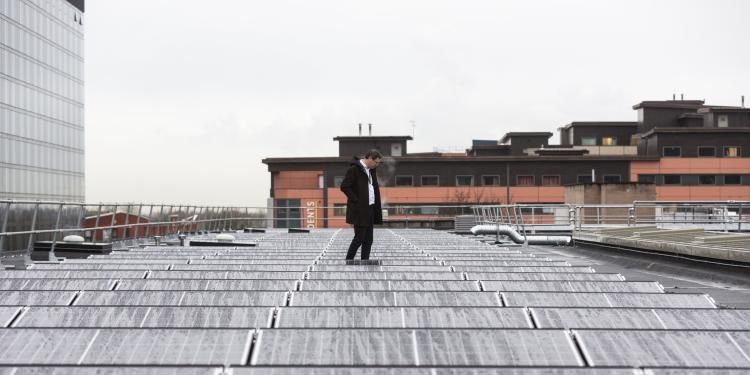Manchester’s vision for the future
Greater Manchester Combined Authority combined project comprised of all ten local authorities, Transport for Greater Manchester, Greater Manchester Fire and Rescue, Greater Manchester Police, Royal Northern College of Music and Manchester college. This was heavily supported by their local network operator Electricity North West. This has allowed Greater Manchester Combined Authority to deliver an estimated reduction of 8,000 tonnes of carbon dioxide per annum for the next 25 years, totalling 125, 000 tonnes over the life of the programme from low carbon retrofit measures to their public buildings.
The project at the Royal Northern College of Music is part of Greater Manchester Combined Authorities’ commitment to the Manchester Tyndall Project, which has set all districts and boroughs targets to be net zero by 2050 across all public buildings. Tyndall Centre Manchester researchers are creating a plan for concerts and tours to have zero emissions, or as close to zero as possible.
The band Massive Attack approached the scientists to find solutions for the music industry’s live performances. The Tyndall Centre’s research shows live concerts and performances generate 405,000 tonnes of greenhouse gas emissions each year. 34% of which comes from the venue and 33% from audience travel. Band travel, accommodation, merchandise, and promotions contribute to 33% of emissions. The research will be looking at how to reduce the amount of energy used during concerts and in moving musicians, crews and sets between different venues and cities, as well as the impact audiences have.





